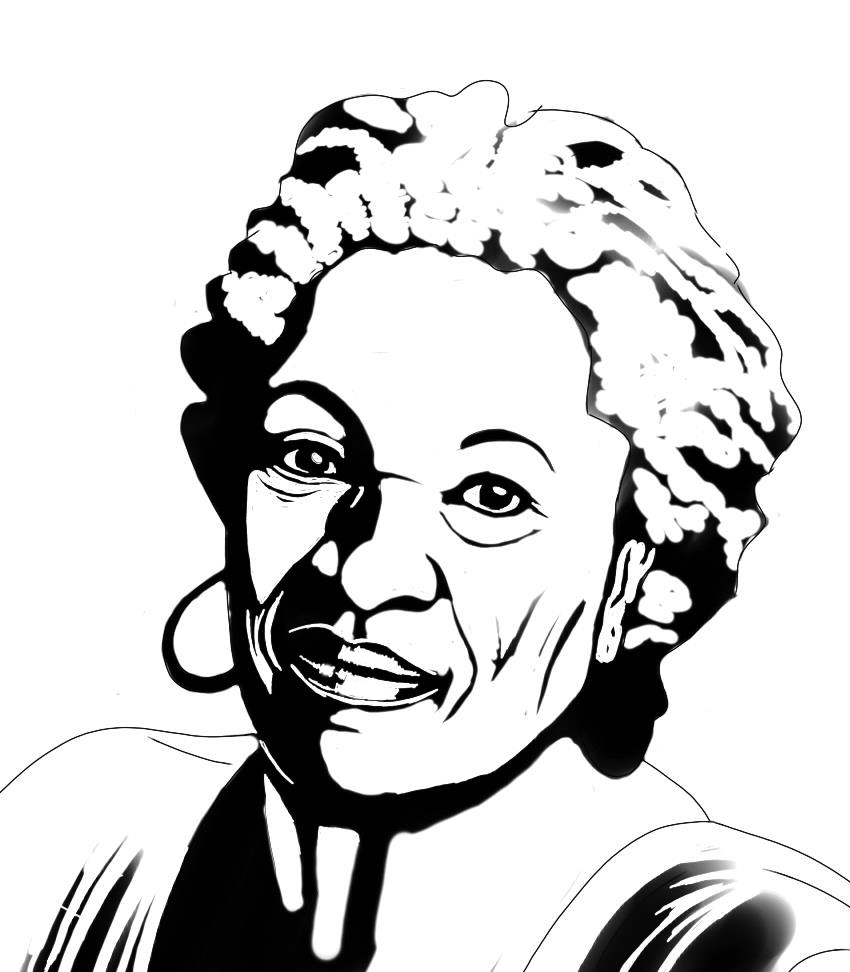
Two weeks ago I ventured into Harvard territory to witness Toni Morrison delivering a lecture to an audience of 300. Among her many accolades, the 85-year-old author of 11 novels has won a Pulitzer Prize and Presidential Medal of Freedom. She is also the first African American female Nobel laureate in literature. After seeing Morrison handle topics both light and serious, from sex to racially charged police brutality, I realized that her literature has two profound implications for intellectual culture at Yale.
The first revolves around pot pie. See, good writing is like good pot pie: food for the soul crafted in a creative, homemade fashion. Excellent writers have exemplary cooking skills — they thoroughly knead dough, astutely chop onions without crying and whisk eggs at breakneck speed. In other words, pen-wielding artists have a keen ear for syntactical cadence, appropriately-scaled metaphors and nuanced antidotes to naive cliches.
Writers differ, however, with respect to the ingredients they inject into the pie — that is, the mental content and structural variation they bring to the table. The literary establishment regards Morrison as genius for good reason: Her ingredients contain the same high quality fiber as those of James Baldwin, Richard Wright, Langston Hughes and more contemporary authors such as Zadie Smith. Morrison specifically infuses her prose with a deep historical knowledge of black history, a brutally honest grasp on the black conscience, fantastical thinking, word pressure, invisible ink, anecdotal symbolism, iconoclasm and wisdom.
But most of her ingredients are not taught in the traditional classroom. Take wisdom, for instance, which abounds in her novel “Jazz.” The main character sagely remarks, “Don’t ever think I fell for you, or fell over you. I didn’t fall in love, I rose in it.” This understanding of a universal emotion only comes with fine-tuned perception of the turbulence and triumphs of daily existence — not SAT grammar exercises or vocabulary quizzes.
Another ingredient, iconoclasm, is actually shunned in conventional pedagogy. Institutions like Yale thrive on prestige and cultural mores that date back centuries to John C. Calhoun. Iconoclastic practice is taboo at Yale, where a general thirst for objective achievement dominates campus culture through grade inflation, a judgmental social pecking order and the quest for hot summer internships. Questioning the flawed status quo is nearly impossible on this Gothic campus, where a faux utilitarian calculus conditions our every move.
Morrison teaches that intellectualism often results from the twin forces of wisdom and iconoclasm, instruments that are essential to investigating human existence. Such investigations produce fine literature, but are neglected for fear of disrupting the Ivy League social order.
The second implication that Morrison brings to intellectual culture at Yale involves a crucial distinction between individualistic and collective pot-pie making. When Morrison writes a story such as “Song of Solomon” or “The Bluest Eye”, she endeavors to tell a tale that hasn’t been told before, one that wrings emotional candor and intellectual irreverence. Morrison doesn’t write for money, fame or ego-stroking. She makes her pot pie for a village, not a private mansion. As a stylistic icon and thematic boundary-pusher, she writes both for personal enrichment and for the story-starved masses.
There is an astounding difference between “selfish smart” and “selfless smart.” “Selfish smart” is the rising senior you know who has already locked down an internship at Goldman Sachs. “Selfless smart” is the upper-middle-class friend who dedicates their life to social justice in NGO-form.
The bottom line is that “smart” does not exist in a moral vacuum — it carries character. The choices you make at a $240,000 institution like Yale reflect your principled dedication to an intellectual cause, or lack thereof. A student who creates an anemia-detecting, marketable finger machine uses their education for infinitely better purposes than the student who crunches expensive numbers at a hedge fund in Connecticut. This distinction matters.
In the end, Morrison teaches us that intellectual undertakings matter more when executed in the service of others, and when they impart knowledge that is not and cannot be taught in school. As a consequence, baking first-rate pot-pie necessarily eclipses the constant grind of college academics. That’s disappointing, but enlightening at the same time. If discovering my own pot pie’s ingredients means sacrificing a few points of my GPA, so be it.
Isaac Amend is a junior in Timothy Dwight College. His column runs on alternate Mondays. Contact him at isaac.amend@yale.edu .







